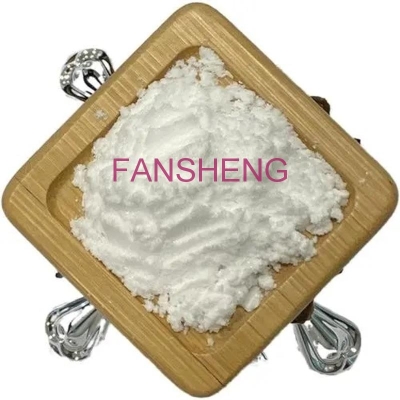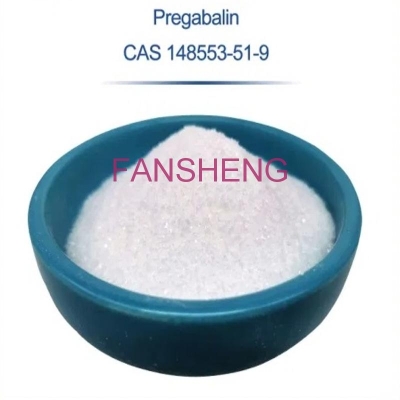-
Categories
-
Pharmaceutical Intermediates
-
Active Pharmaceutical Ingredients
-
Food Additives
- Industrial Coatings
- Agrochemicals
- Dyes and Pigments
- Surfactant
- Flavors and Fragrances
- Chemical Reagents
- Catalyst and Auxiliary
- Natural Products
- Inorganic Chemistry
-
Organic Chemistry
-
Biochemical Engineering
- Analytical Chemistry
- Cosmetic Ingredient
-
Pharmaceutical Intermediates
Promotion
ECHEMI Mall
Wholesale
Weekly Price
Exhibition
News
-
Trade Service
Alzheimer's disease (AD) is the leading cause of disability in people over 65 years of age worldwide and the fifth leading cause
of death worldwide.
AD has become a global health threat
to older adults.
It is a heterogeneous disease
with complex pathobiology.
The core pathological features of AD are amyloid plaques and neurofibrillary tangles (NFTs) in the brain, accompanied by associated synaptic and neuronal damage, leading to cognitive deficits
.
Amyloid-β (Aβ) peptides and Tau proteins are the main components
of plaques and tangles, respectively.
Many studies have shown that the number and location of NFTs are strongly correlated
with neuronal loss, AD disease severity, and clinical course.
There are currently no drugs to
slow the progression of AD.
Considering the complex and multifactorial pathology of AD, TCM is safer than synthetic drugs with single-target activity, and contains multiple active ingredients, which can act on multiple targets at the same time and produce synergistic interventions
for AD patients.
Clinical trials have shown that traditional Chinese medicine has a positive effect
on the early prevention of AD and the improvement of cognition and brain activity in AD patients.
Further exploring the regulatory mechanism of AD-related signaling pathways is conducive to revealing the therapeutic targets of Chinese herbal intervention in AD
.
However, no systematic review
of signaling pathways in TCM interventions in AD studies has been conducted.
Therefore, this study aims to reveal the classical signaling pathways and important potential targets of traditional Chinese medicine in the treatment of Alzheimer's disease (AD), and provide support for further research on traditional Chinese medicine and its active ingredients
.
Materials and methods: The literature survey adopts PubMed, Web of Science, Google Scholar, CNKI and other databases, with "Alzheimer's disease", "Chinese medicinal materials", "Chinese herbal medicine" and "natural plants" as the main keywords
.
Results: Traditional Chinese medicine could regulate signaling pathways related to the pathological progression of AD, including NF-κB, Nrf2, JAK/STAT, ubiquitin-proteasome pathway, autophagy-lysosomal pathway related AMPK/mTOR, GSK-3/mTOR and PI3K/Akt/mTOR, as well as SIRT1 and PPARα pathways
.
It can regulate crosstalk between pathways through multiple targets, thereby maintaining the balance of chronic inflammatory interactions, inhibiting oxidative stress damage, regulating ubiquitin-proteasome system function, regulating autophagy, and ultimately improving cognitive impairment
in AD patients.
Conclusion: Traditional Chinese medicine can prevent and treat AD at multiple levels, targets and directions, and the pathogenesis of AD prevention and treatment by traditional Chinese medicine can be deeply studied, and the development of new anti-AD drugs can provide new ideas
for exploring the pathogenesis of AD and developing new anti-AD drugs.
Intracellular signaling pathways mediate major events in the cell life cycle and are closely related
to AD development.
At the same time, in the evolution of organisms, complex and close connections
are established between major signaling pathways.
This study synthesizes and summarizes the mechanism and potential of traditional Chinese medicine on AD from the perspective of signaling pathway.
In summary, in the future, in-depth research on the prevention and treatment of AD in traditional Chinese medicine should be carried out to provide new ideas for exploring the pathogenesis of AD and screening potential targets of AD treatment, and laying a certain foundation
for the further development of new AD therapeutic drugs.
Original: Ding MR, Qu YJ, Hu B, An HM.
Signal pathways in the treatment of Alzheimer's disease with traditional Chinese medicine.
Biomed Pharmacother.
2022 Aug; 152:113208.
doi: 10.
1016/j.
biopha.
2022.
113208.
Epub 2022 May 31.
PMID: 35660246.







